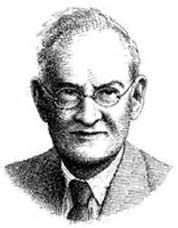A Quote by Blaise Pascal
Those who profess contempt for men, and put them on a level with beasts, yet wish to be admired and believed by men, and contradict themselves by their own feelings--their nature, which is stronger than all, convincing them of the greatness of man more forcibly than reason convinces them of his baseness.
Related Quotes
What is a Poet? He is a man speaking to men: a man, it is true, endued with more lively sensibility, more enthusiasm and tenderness, who has a greater knowledge of human nature, and a more comprehensive soul, than are supposed to be common among mankind; a man pleased with his own passions and volitions, and who rejoices more than other men in the spirit of life that is in him; delighting to contemplate similar volitions and passions as manifested in the goings-on of the universe, and habitually impelled to create them where he does not find them.
They will endure. They are better than we are. Stronger than we are. Their vices are vices aped from white men or that white men and bondage have taught them: improvidence and intemperance and evasion-not laziness: evasion: of what white men had set them to, not for their aggrandizement or even comfort but his own.
Very few men can speak of Nature, for instance, with any truth. They overstep her modesty, somehow or other, and confer no favor.They do not speak a good word for her. Most cry better than they speak, and you can get more nature out of them by pinching than by addressing them. The surliness with which the woodchopper speaks of his woods, handling them as indifferently as his axe, is better than the mealy-mouthed enthusiasm of the lover of nature. Better that the primrose by the river's brim be a yellow primrose, and nothing more, than that it be something less.
In handling men, there are three feelings that a man must not possess-fear, dislike and contempt. If he is afraid of men he cannot handle them. Neither can he influence them in his favor if he dislikes or scorns them. He must neither cringe nor sneer. He must have both self-respect and respect for others.
Men of superior vivacity and wit, when they take a wrong turn, are generally worse than other men: because wit, consisting in a lively representation of ideas assembled together, gives every sensible object those heightening touches, and that striking imagery, which is unknown to men of slower apprehensions: wit being to sensible objects, what light is to bodies; it does not merely show them as they are in themselves: it gives an adventitious colour, which is not a property inherent in them: it lends them beauties which are not their own.
We are so vain as to set the highest value upon those things to which nature has assigned the lowest place. What can be more coarse and rude in the mind than the precious metals, or more slavish and dirty than the people that dig and work them? And yet they defile our minds more than our bodies, and make the possessor fouler than the artificer of them. Rich men, in fine, are only the greater slaves.
Instead of casting away all our old prejudices, we cherish them to a very considerable degree, and, to take more shame to ourselves, we cherish them because they are prejudices; and the longer they have lasted and the more generally they have prevailed, the more we cherish them. We are afraid to put men to live and trade each on his own private stock of reason; because we suspect that this stock in each man is small, and that the individuals would do better to avail themselves of the general bank and capital of nations and of ages.
For such is the nature of men, that howsoever they may acknowledge many others to be more witty, or more eloquent, or more learned, yet they will hardly believe there be many so wise as themselves, for they see their own wit at hand, and other men's at a distance. But this proveth rather that men are in that point equal, than unequal. For there is not ordinarily a greater sign of the equal distribution of any thing than that every man is contented with his share.
There are men who bloom in chaos. You call them heroes or villains, depending on which side wins the war, but until the battle call they are but normal men who long for action, who lust for the opportunity to throw off the routine of their normal lives like a cocoon and come into their own. They sense a destiny larger than themselves, but only when structures collapse around them do these men become warriors.
Truth and falsity, indeed understanding, is not necessarily something purely intellectual, remote from feelings and attitudes. ... It is in the total conduct of men rather than in their statements that truth or falsehood lives, more in what a man does, in his real reaction to other men and to things, in his will to do them justice, to live at one with them. Here lies the inner connection between truth and justice. In the realm of behavior and action, the problem recurs as to the difference between piece and part.
Men create their own gods and thus have some slight understanding that they are self-fabricated. Women are much more susceptible, because they are completely oppressed by men; they take men at their word and believe in the gods that men have made up. The situation of women, their culture, makes them kneel more often before the gods that have been created by men than men themselves do, who know what they've done. To this extent, women will be more fanatical, whether it is for fascism or for totalitarianism.
One admirable trait in women is their lack of illusions about themselves. They never reason about their most blameworthy actions; their feelings carry them away. Even their dissimulation comes naturally to them, and in them crime is free of all baseness. Most of the time they simply do not know how it happened.









































